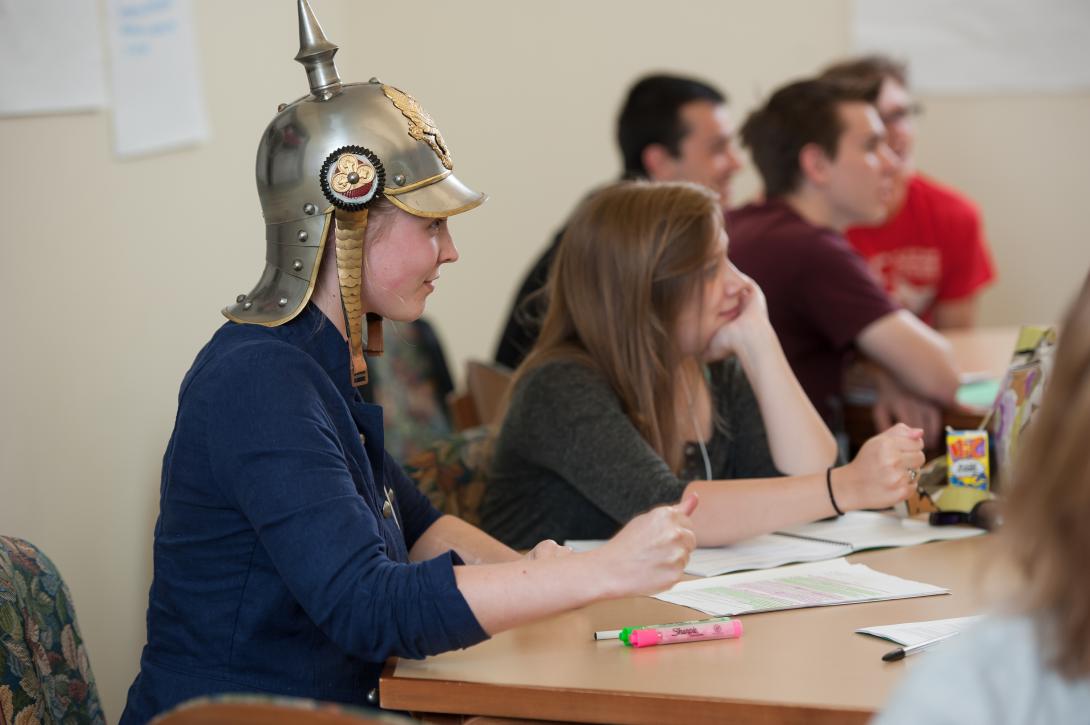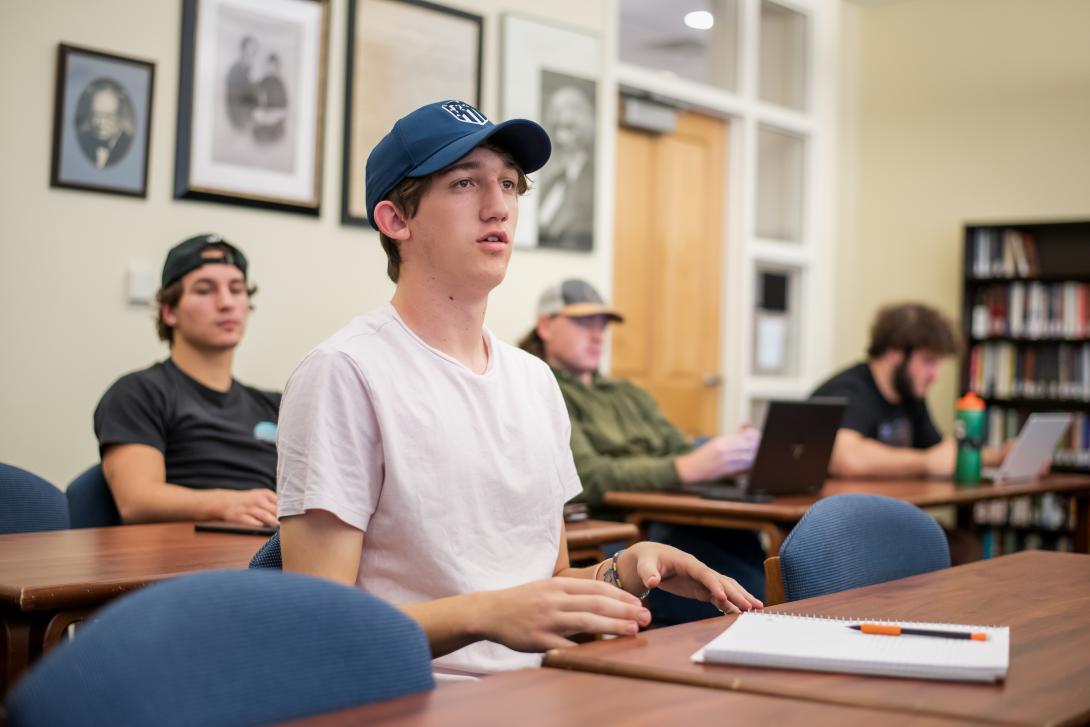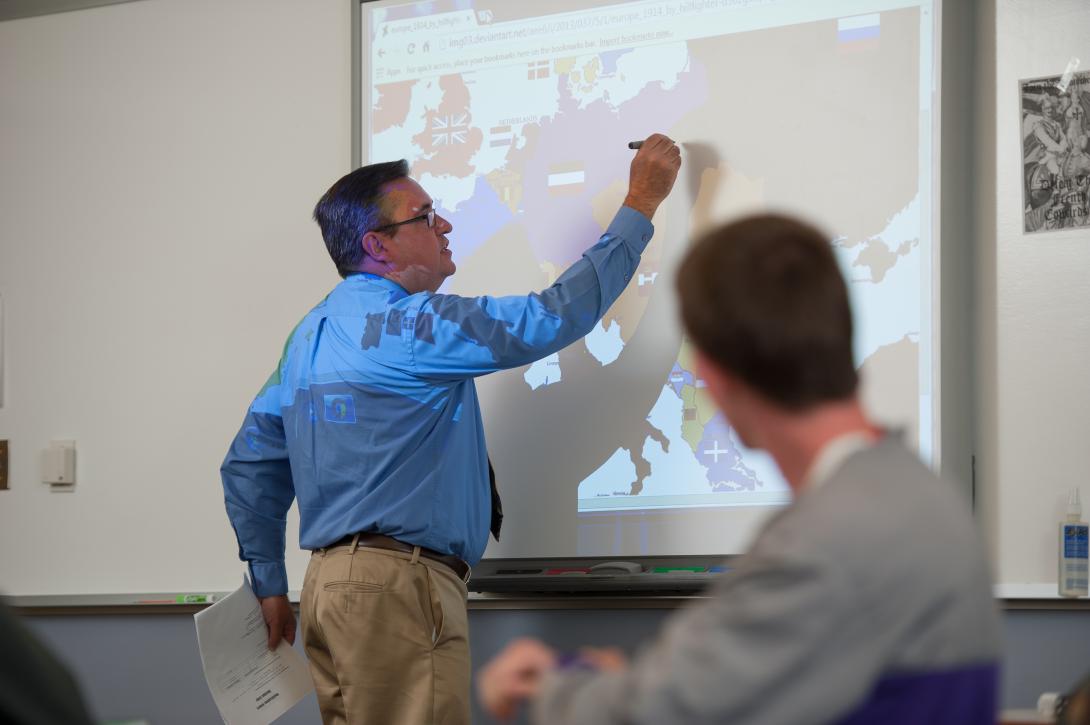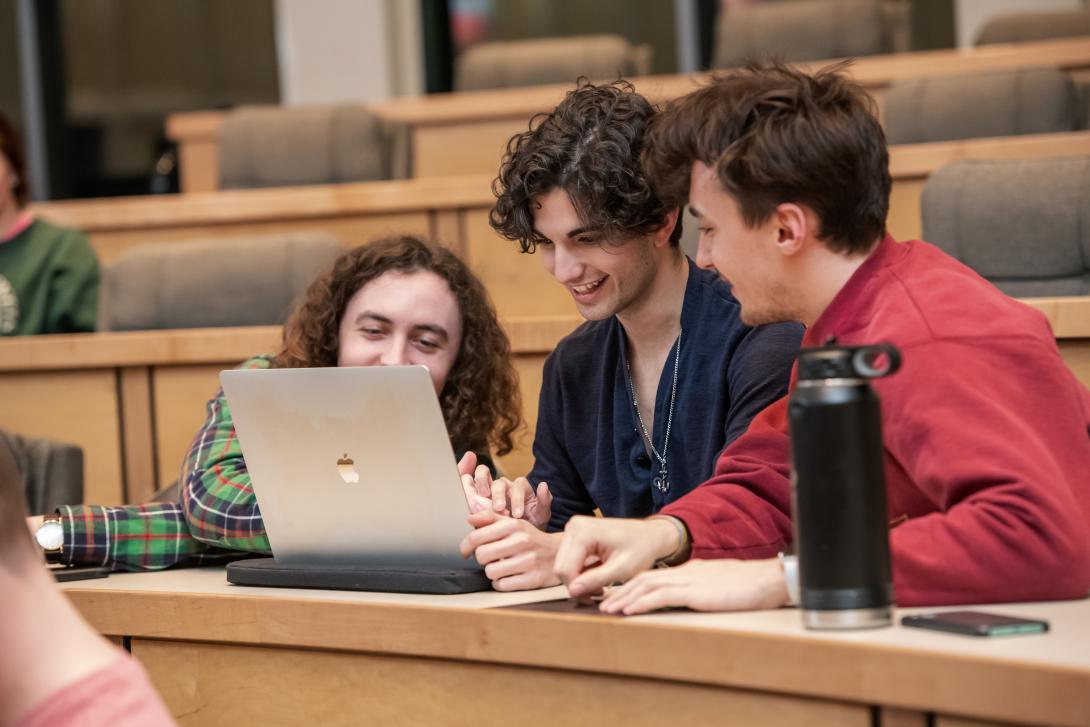Classical Civilizations Minor
The minor in Classical Civilization invites students on a captivating journey into the ancient world, offering a comprehensive exploration of its rich history, literature and languages.
Curriculum
Foundational courses in Western Civilization to 1500 and Topics in Classical Civilization provide students with a solid understanding of the core aspects of ancient cultures, laying the groundwork for deeper exploration.
Through courses in elementary and intermediate Latin, students develop proficiency in understanding primary classical texts, enabling them to engage directly with the literature and language of antiquity, fostering a deeper appreciation for classical literature and culture.
Elective options in Ancient Greece or Ancient Rome and the Rise of Christianity allow students to tailor their studies to their interests, diving deeper into specific aspects of classical civilizations. By delving into these elective courses, students gain insights into the political, social, and cultural dynamics of ancient societies, further enriching their understanding of this pivotal period in human history.
With a total of 18 credit hours, this minor equips students with valuable insights into classical civilization, cultivating critical thinking skills and interdisciplinary understanding that are highly applicable across various academic and professional contexts.
For more information about the curriculum, view the Academic Catalog.

Classical Learning Minor
We are proud to offer the only Classical Learning minor program in the state of Ohio. Do you envision yourself educating the next generation in a classical, parochial or other non-traditional school setting? Then Classical Learning might be the right fit for you!
Rooted in timeless principles, this program equips students with the tools to foster critical thinking, moral formation and civic engagement in the classroom. Through a blend of historical inquiry, linguistic exploration and interdisciplinary study, students will emerge as skilled educators prepared to inspire and empower the next generation.
Curriculum
The Classical Learning minor at Ashland University offers a comprehensive exploration of the classical education tradition.
Students delve into the foundational pillars of the trivium and quadrivium, engage in methodological inquiries and master the fundamentals of classical pedagogy.
From courses in Latin language to studies in logic and geometry, this curriculum cultivates a deep understanding of classical principles while fostering the development of lifelong learners and empathetic educators. This program does not lead to teacher licensure.

History Minor
The minor in History offers students a fascinating exploration of the past, providing insights into the events, cultures and individuals that have shaped our world. From ancient civilizations to modern societies, students have the opportunity to delve into specific eras, regions or thematic areas of interest, gaining a nuanced understanding of the complexities of the past. With an emphasis on critical analysis and interpretation, this minor cultivates invaluable skills in historical inquiry, research and communication, preparing students for a wide range of careers in fields such as education, public service, law, journalism and more.
Curriculum
The curriculum of the minor in History comprises foundational courses covering Western Civilization or American History, providing students with a comprehensive overview of key historical developments.
Students begin by selecting foundational courses, delving into either Western Civilization or American History, to establish a broad understanding of historical contexts. These foundational courses serve as a springboard for further exploration through a diverse selection of history electives.
Students then have the flexibility to tailor their minor by choosing from a range of history electives, allowing for deeper exploration into specific periods, regions or themes.
With a total of 18 credit hours required for completion, this minor equips students with valuable critical thinking skills and historical perspectives that are applicable across various academic and professional endeavors.
For more information about the curriculum, view the Academic Catalog

Political Economy Minor
The minor in Political Economy provides students with a comprehensive understanding of the intersection between political and economic systems, offering insights into the complexities of governance, public policy and market dynamics. Through a combination of core courses and elective options, students gain a nuanced understanding of economic principles, political institutions and their impact on society.
Curriculum
Students begin with POLSC 101, Understanding Politics, which introduces foundational concepts and theories in political science, providing students with a broad understanding of political systems and institutions.
Building upon this foundational coursework, students take POLEC 200, Foundations of Political Economy, which explores the historical development and theoretical underpinnings of political economy, examining the interactions between politics, economics, and society.
Students then delve into more specialized topics with POLEC 310, The Political Economy of a Free Society, which examines the principles and practices of market-based economies and the role of government in regulating economic activity.
To provide a solid foundation in economic theory, students complete ECON 232, Principles of Microeconomics, and ECON 233, Principles of Macroeconomics, which introduce key concepts in microeconomic and macroeconomic analysis.
For the elective component of the minor, students choose one course from a selection of options, including American Political Economy, International Political Economy/Globalization, or Topics in Political Economy, allowing for deeper exploration of specific areas within the field.
With a total of 18 credit hours required for completion, the minor in Political Economy equips students with valuable interdisciplinary knowledge and analytical skills applicable to careers in economics, public policy, international relations and more.
For more information about the curriculum, view the Academic Catalog.

Political Science Minor
The minor in Political Science provides students with a comprehensive understanding of political systems, institutions and theories, offering insights into the complexities of governance, public policy and political behavior. Through a combination of core courses and elective options, students gain a nuanced understanding of political processes and develop critical thinking and analytical skills essential for informed citizenship and careers in government, law, advocacy, and public service.
Curriculum
Students begin with POLSC 101, Understanding Politics, which introduces foundational concepts and theories in political science, providing students with an overview of political systems, ideologies and institutions.
Building upon this foundational coursework, students take POLSC 102, Democracy in America, which explores the principles, practices and challenges of democratic governance in the United States, including topics such as elections, political parties and civil liberties.
Students then choose one course from a selection of Western Political Thought options, including POLSC 343, 345, or 346, which examine key figures and ideas in the history of political philosophy, from ancient Greece to the modern era.
To complete the minor, students select nine credit hours of elective courses from a diverse range of political science offerings, allowing for specialization in areas such as comparative politics, international relations, public policy or political theory.
With a total of 18 credit hours required for completion, the minor in Political Science equips students with valuable knowledge and skills applicable to various fields within the public and private sectors, preparing them for engagement in civic life and professional opportunities in politics and government.
For more information about the curriculum, view the Academic Catalog.

